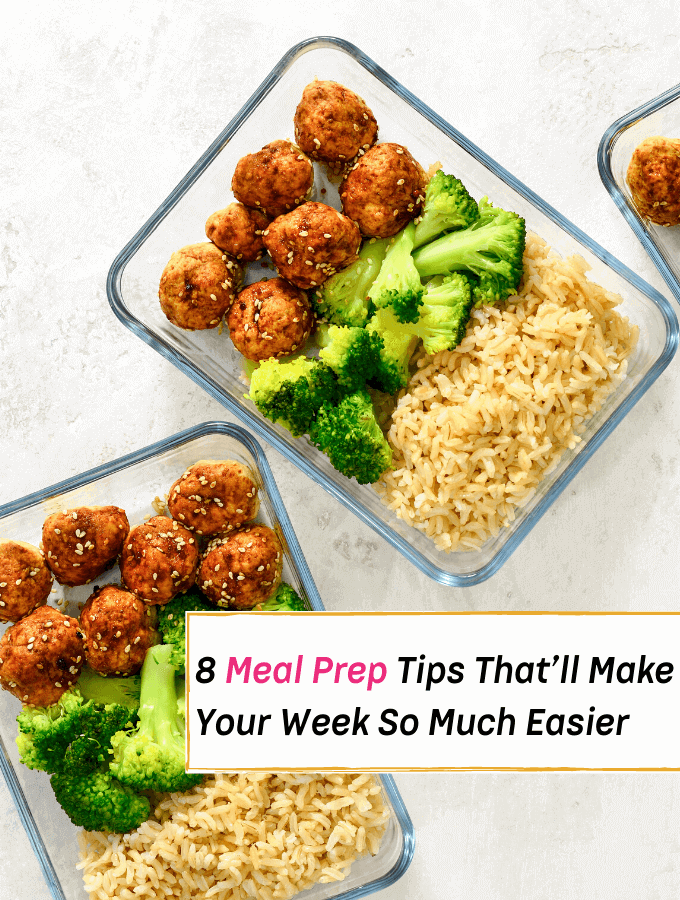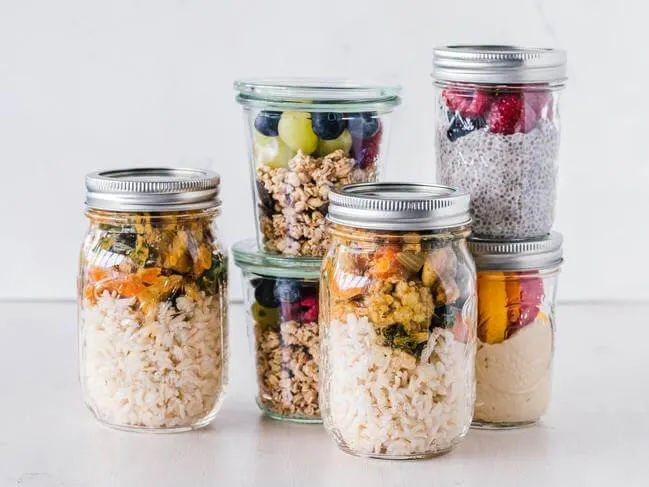
Do you want to be a meal planner? If so, you are about to discover that food planning not only will save you time and energy but it also saves more money.
How do you get the most out of meal planning? You must follow these easy prep steps within this article to help keep track of your healthy eating.
Meal prepping is a huge bonus of this forward-thinking approach, and if we are truly honest, above all, staying healthy is the best advantage of preparing your meals.
Take a look at these basic meal prepping tips because preparing your food is the most innovative part of food planning!
8 Meal Planning Tips to save you time

1. Audit the foods you already eat.
First, what is food preparation? Food planning is the secret GAME PLAN to intentionally identify the foods you wish to eat all week long.
Only by an overall audit, you can learn how to make your first week ideal. Auditing is the best method for newbies because it helps you figure out what you absolutely need to keep, what you’re wasting, and what you need to scratch from the list when you’re in the food store.
Ask yourself and your family about what changes, what are you reluctant to eat, and what you want to eat more of for today ‘s meals and dinners.
2. Create a menu/schedule that is realistic.
Quick preparation saves you a lot of food money if you know what you need in advance. Develop a quick schedule that helps you to catch yourself a week in advance, so you know what tasks, work schedules, and events you need to prep for.
Your schedule should outline what a typical week would look like for you and your family, in terms of food consumption. Look at things like what is going on during your week, from work hours to school hours to any other extra activities, and organize what you will need.
Grasp how many meals approximately you and your family will consume, tally it up, and then write it all down on a weekly calendar.
3. Start and plan for no longer than a week in advance.
If you’re new to meal planning, then it’s easier to start a meal plan for just a week than to plan meals for a month.
You will continue to extend your knowledge over the course of time to plan for the month but for now, continue with the first 7 days. Do so because plans can change and food can go bad, of course.
4. Create a food theme that also saves you money.
Now you can choose your favorite foods for the food theme for your week after knowing your daily and weekly schedule. Food themes like; Taco Tuesdays, Meatless Mondays, and Anything Wednesdays are also a life-saving choice for newbie planners. This will really save you a ton of money because you’ll know exactly what you are cooking for the week ahead.
5. Come up with meal ideas that support your week’s theme.
Now, you’ll want to develop a couple of food ideas that will help you at this point. Browse Pinterest, blogs, and websites and find recipes, which will inspire you to start your food preparation, and which are very desirable and easy to follow. Let all the ideas flow and see what brings you excitement to get ready for the next step!
6. Pick recipes with similar ingredients.
Make sure that you pick recipes that all have similar ingredients so that they can be mixed and improved upon throughout the week. As you cook your meals, you’ll thank yourself for using similar ingredients because it’ll save you time, money and allow you to be more innovative for your next meals!
7. Condense the list.
After the list of recipes is saved on your Pinterest Food Planning Board, or on your list of things to make? Now the time has come to condense it. Usually, this entails roughly eight to ten recipes for a dinner schedule for a week. But follow your instincts, if it’s intimidating? Begin with only one or two recipes to add to your shopping list, for this week, so you can get a handle on what meal planning is all about.
8. Write out your shopping list.
You have to shop deliberately when it comes to meal planning. To do this, you should now check all of your ingredients, your refrigerator, and cupboards (so you do not double your ingredients) so you can write down your list and find all the other stuff you may need to add to it.
It is important to write a food list and bring it with you that way you use the items you already have lingering in the back of the pantry. Plus, there are so many benefits to bringing a shopping list with you which I list out in this article here!
There you have it! It’s time to think about what you really need, what you eat on a daily basis, and what’s practical for your lifestyle. If you do, you’ll be well on your way towards being an expert meal planner!
Author: Everything Abode
Welcome to Everything Abode, your daily inspiration for every activity at home!
Our goal is to inspire you to live an elegant and chic lifestyle from the comfort of your home.
We’ll help you express yourself through authentic style, aesthetic beauty, and stylish home decor.
12 Best Sleep-Inducing Foods To Help You Sleep Soundly
30 Delicious Apple Recipes to Make on a Rainy Day
11 Worst Snacks to Eat Before Bed
6 Energizing Green Superfoods That Can Do Wonders For Your Health
8 Grocery Shopping List Apps To Save Money
8 Simple Ways to Slim Down & Lose Weight While Plant Based
Subscribe to Get the Tools That Make My Blog Successful!

When you join my newsletter, I'm going to send you insider advice and tools that I use to grow my blog! I only save the BEST for my email list so don't wait!
